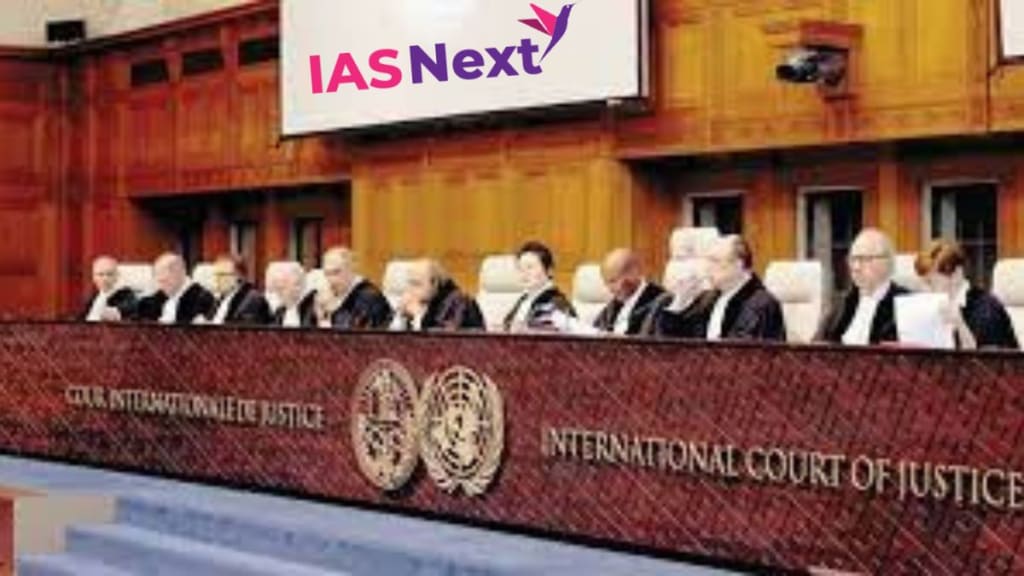Composition & Jurisdictions Of International Court Of Justice
IAS NEXT is a topmost Coaching Institute offering guidance for Civil & Judicial services like UPSC, State PCS, PCS-J exams since more than 10 years.

International Court of Justice (ICJ) is the successor of the Permanent Court of International Justice. The statute of Permanent Court of Justice has been adopted for the International Court of Justice (hereinafter referred as ‘Court’). The establishment of the Court became necessary because to attain the end of International law there must be a judicial organ. So, the Court is the ‘Principle Judicial Organ’ of the International Organization.
The composition of the Court may be explained as under:
Strength: – The Court is consisted of fifteen judges. And not more than one judge shall be elected from one state, for the Court at a given time.
Qualifications: – The candidate for the office of judge in the Court shall possess the following qualifications:
a). He should be independent.
b). He should be a person of high moral character.
c). He must be qualified for the appointment of the highest judicial offices in his country.
Nature of the office: – The nature of the office of judge for the Court is elective. In other words the judges for the Court shall be elected in General Assembly and Security Council.
Election: – General Assembly and Security Council shall conduct the election of the judges of the Court independently, but simultaneously. These two organs shall elect the judges from the list of nominees prepared by the national groups in the Permanent Court of Arbitration.
Term of office: – The term of the office for the judge of the Court is nine years, however, five of them shall be retired after each three years and so, for such vacancies election shall also be conducted after each five years as to maintain the strength to fifteen.
Obligations of Judges: – Any person who has so been elected as a judge of the Court is bound to;
a). refrain from all political and administrative functions,
b). refrain from being council, agent or advocate in any case, and
c). not participate in any case in which he has previously has taken part as agent, counsel or advocate for one of the parties.
Quorum of the Court: – The quorum of the Court is fixed at nine judges.
President of the Court: – After each period of three years the Court shall elect its president. The president shall preside the cases of the Court. But if in a case any party is his national he shall not be entitled to as act as president.
Vice-President of the Court: – Along with the election of the president the shall also elect its vice-president. Voice president shall act as president in a case where president is not present or where president is not entitle for presidency due to one of the parties to the case is being his national.
Chamber: – The Court is entitled to form a chamber, composed of not less than three members or which the Court may think fit. Different chamber may be declared by the Court to deal with different cases. The Court may constitute a chamber to deal with a particular case. The Court shall itself along with the approval of the parties to the case determine the chamber.
Ad hoc Judges: – The statute of the Court reveals that ad hoc judges may be appointed in those cases where there is no national judge of the party to a case. That party can appoint a national judge in that particular case.
Jurisdiction: –
Broadly speaking there are two kinds of jurisdiction of the Court – Contentious Jurisdiction, and Advisory Jurisdiction.....Read more
Read Also : International Court Of Justice – ICJ
About the Creator
Enjoyed the story? Support the Creator.
Subscribe for free to receive all their stories in your feed. You could also pledge your support or give them a one-off tip, letting them know you appreciate their work.





Comments
There are no comments for this story
Be the first to respond and start the conversation.